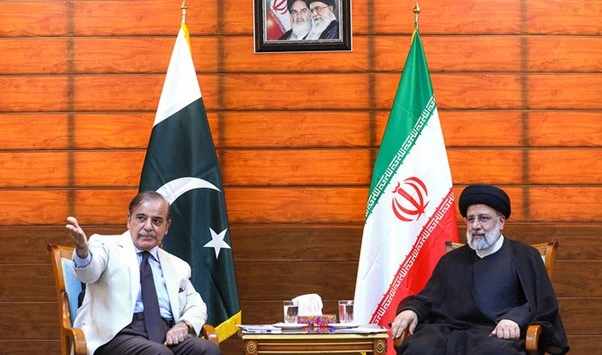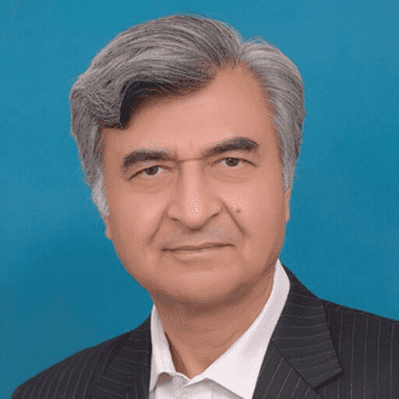The declaration of ceasefire between Iran and Israel by President Donald Trump is a big milestone in recent Middle Eastern international relations. Although the involvement of military forces in the conflict and the role of Washington in negotiating the halt of hostilities gained most of the attention in the wider world, the constructive efforts, played behind the curtain, by Pakistan have yet to be appreciated comparatively.
However, Islamabad well-calculated diplomacy, timely actions, and a mature approach to foreign policy made the country one of the central figures in the region that put forward de-escalation and peace initiatives. Having been shaken by this crisis, Pakistan was not going to become a mere spectator, but a responsible actor with a clear strategic vision and looking into the future.
Pakistan was very rational and principled throughout the Iran-Israel conflict. It publicly opposed the Israeli aggression and supported Iran; that prevented the isolation of Tehran at the time of the crucial turn. Simultaneously, Pakistan refrained to use inflammatory rhetoric or commit acts that would have caused more destabilization of the region. Its reaction was tailored in a way that would enhance the stability within the region and in a way that augmented its national interests which were founded on a stable, secure and safe neighbourhood.
The uninterrupted interaction of Pakistan with the regional stakeholders on the one hand and the great global powers such as the United States of America on the other hand were critical towards establishing a conducive environment under which the armed ceasefire could occur. Islamabad never turned into populist slogans or reactionary politics. Rather, it exploited diplomatic means that controlled restraint, talks, and peaceful settlement.
This is clear in the top-level dialogue that the Pakistani government and top players had been engaged in: PM Shehbaz Sharif was in constant communication with Iranian President, and the Gulf countries, namely Saudi Arabia and Qatar. These measures made Pakistan look like a stable and peace-motivated neighbour that is not interested in confrontation but in de-escalation.
Probably most eminent, the position of the Chief of Army Staff (COAS) of Pakistan performed by General Asim Munir was a determining factor. The fact that he held a long meeting with President Trump in the very peak of tensions may have changed the strategy of the US administration significantly. Following this conversation, the United States decided to make a symbolic but not hard-hitting strikes against Iranian centers of nuclear work, which had already been damaged during previous conflicts, in order to satisfy Israel without experiencing serious retaliatory actions.
The same logic informed President Trump, who was more constrained in relation to Iran, especially when he did not react to Iranian launching missiles against US bases in Qatar and Iraq, and when he abandoned talk of regime change. As Trump himself claimed after his talk with General Munir, when he said, they know Iran well, it can be observed that the advice given by Pakistan helped to create a de-escalatory American stance.
A somewhat out-of-the-ordinary yet a strategically important step was offered by the unsuccessful surprise nomination of President Trump by Pakistan to the Nobel Peace Prize. In the first instance, it looked quixotic, even controversial. But it was a strategic act: by appreciating the role of Trump in ending hostilities between nations in the previous clash between India and Pakistan, Pakistan positioned him as an international balancer.
This was not an appeasement, but a vision, which perhaps would infiltrate the American president towards being a peace broker in the Middle East. The nomination opportune a diplomatic opening which was ahead of the official ceasefire announcement as it strengthened the movements which Pakistan was making to direct the international focus to resolving the conflict.
Parallel to this, Pakistan also strengthened its allegiance to the spirit of multilateral diplomacy, by, along with China and Russia, co-sponsoring a draft resolution by the United Nations Security Council urgently seeking the unconditional and immediate ceasefire. This did not only give added credence to the principled position of Islamabad but placed it in a larger league of nations seeking the establishment of collective security and being bound and obliged to international standards. In this way, Pakistan eliminated the bilateral activities and put itself in the centre of international affairs.
Pakistan reserve policy was emphasized by backchannel diplomacy. Behind the scenes Islamabad was playing its role in building bridges amongst adversaries and urging restraint. This strategy accompanied by its open criticism of the aggressive attitude of Israel and clear support of the Iran sovereignty led to the decrease in the potential level of further escalation. It was a driven message that Pakistan is ready to work with the region peacefully but not when it comes to putting up with injustices.
The most commendable aspect of Pakistan in the Iran-Israel crisis is that the country was able to pursue the competing interests and yet not sacrifice their values. Its stand with Iran confirmed its regional interests. Its interest was to secure the bigger diplomatic and economic interest through playing positive roles in relation to the United States. Through this principled but pragmatic two-track policy, the country responds to a new era of diplomatic maturity.
In a larger geo-political picture also this policy approach by Pakistan reconfirmed its conviction that it would better benefit and protect its strategic interests by enshrining itself deeply within the realm of its geography. Islamabad did not pursue the alignment by distant alliances, but it opted to influence the neighbourhood through the spread of stability and peace. Its delicate position in the peace process has therefore strengthened its reputation as a serious, positive role player in the region of Middle East.
The Iran-Israel stand-off is an issue that would have led to a disastrous war in the region. The fact that it did not much is the result of the efforts of states that are ready not only to engage militarily, but also diplomatically. Pakistan was one among those. It engaged in foresight, morality in diplomacy, and institutionalized bargaining which guided them towards an outcome that averted further spillages of blood. The dust has finally settled down and one of the most responsible behaviours demonstrated during the crises was that of a statecraft by Pakistan.








